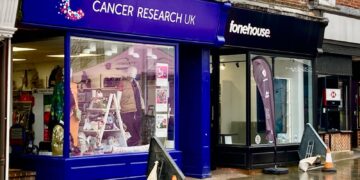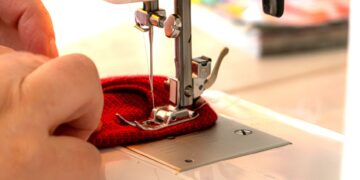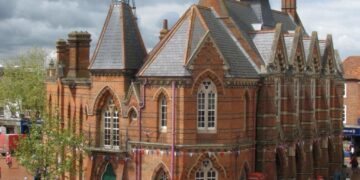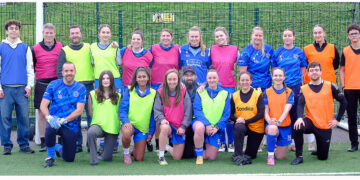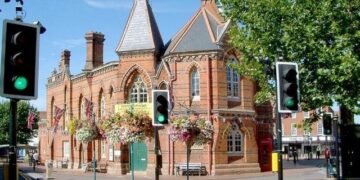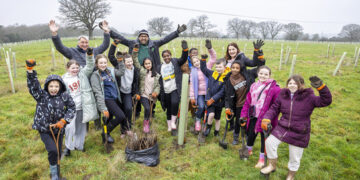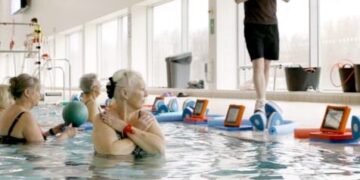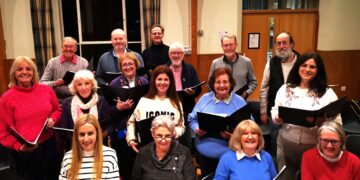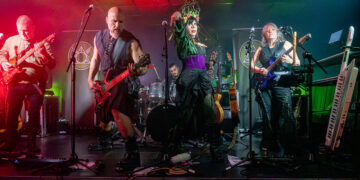A WOKINGHAM resident will take part in London fashion show to raise awareness of breast cancer in young women.
Dalia Ismail and 23 others all living with or beyond cancer, will become catwalk models for the night at the capital’s Science Museum.
Charity, Breast Cancer Now, has organised the event to raise awareness of breast cancer and celebrate life after diagnosis.
Dalia’s own cancer identification came early last year.
Aged 33, she ate healthily, exercised regularly and had no family history of the condition.
The news came as a shock.
“It was very hard to process why it happened,” she says.
“My risk factor was less than half a percent, so the statistics were quite meaningless in my case.”
Dalia underwent several surgeries, radiotherapy and chemotherapy, and will continue to receive preventative treatment for at least the next five years.

“One of the difficult things about treatment is that you can’t really plan anything,” she says.
“You never know how you will feel after therapy, so with nothing planned there is not much to look forward to.”
But the London fashion show gives plenty of reasons to celebrate, and an opportunity to highlight issues that particularly affect young women.
Dalia has been chosen to give a speech before the show, and her talk can be heard by anyone who registers to watch the live streamed event online.
“I’m passionate about raising awareness,” she says.
“Breast cancer can happen in younger women, even in those with no family history, genetic links or usual risk factors.
“And I want to highlight the importance of more research tailored to younger women, to help ensure their treatment outcomes are just as good as older women’s.”
Most women who receive diagnoses are over 50.
This age group makes up 96 per cent of cases, with the remaining 4 per cent under 40.
Breast cancer in young women is rare, but their prognoses tend not to be as good as for older patients.
“Much of the research data is based on women 50 and over, and less applicable to younger women,” Dalia explains.
“The types of cancer that affect the young can be more aggressive, often needing more vigorous treatments.
“And there may also be a hormonal element involved.”
But perhaps the main reason that young women’s prognoses are not generally good is that they are not screened, and they don’t check themselves for lumps.
“Women don’t get called in for mammogram screenings until they are 50,” Dalia says.
“Young women aren’t screened at all, so they’re not likely to spot a lump until it is a considerable size.”
“But it’s really important to try and catch cancer as early as possible.
“I was very fortunate that my lump was in a location where I could feel it, and I went to get it checked.
“But small lumps deep in the breast can’t be felt so easily.”
Dalia urges all young women to regularly check their breasts for lumps.
“I never checked myself before my diagnosis,” she says.
“Now, I’m very keen to improve awareness.”

Dalia is a senior clinical trial manager, running global oncology (cancer) clinical trials in new cancer medicines.
She had some prior knowledge of what her diagnosis would mean.
“My research background has been helpful,” she says.
“In some ways, perhaps, I knew too much.
“I understood how hard chemo is, and I was very scared.
“But it has enabled me to be proactive in learning about the condition and my treatment options.
“I pushed myself to read and understand the correct options for me, and I’ve looked at the risks and side effects which can affect young women differently.”
Navigating a cancer diagnosis and treatment as a young woman can have a huge impact on mental as well as physical health.
There is less information tailored to them, and their priorities can often differ greatly from older patients.
“I wanted to make sure that I wouldn’t be left with really severe side effects,” says Dalia.
“I was keen to protect my overall body, and to be able to make informed choices.
“Reading up has helped me to question what may have been overlooked.
“For example, I knew that it was important to check my bone density before accepting a particular treatment, so I pushed for a bone scan, despite no-one mentioning it.”
She says that fear is powerful.
“You can feel as though you have to say yes, quickly, to what the surgeon or oncologist says.
“But you need to take time to think through the fear, and to make peace with whatever decision you do take.
“You need to be proactive.”

Dalia has found Breast Cancer Now very helpful.
“It’s a great charity,” she says.
“Getting information relevant to young women was difficult, but I found what I was looking for on their website.
“They provide nurses to talk to, and can match you up with someone who has already been through a similar journey to share their experience with you.”
“I’m excited about the fashion show.
“It should be really special evening, and I’m thrilled to have been asked to speak,” she says.
The show is designed by celebrity stylist Rebekah Roy, with the models treated to sessions from London make-up and hair stylists.
For anyone with a recent diagnosis Dalia says: “You have an inner strength.
“At every point, you will get through what you need to get through.
And her advice: “Always question what doesn’t feel right.”
Dalia appears in the fashion show on Thursday, April 20.
The live-streamed event starts at 7pm.
For a link to the event, and for information about Breast Cancer Now, visit: breastcancernow.org



